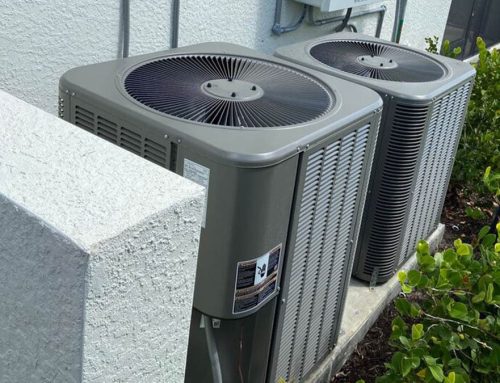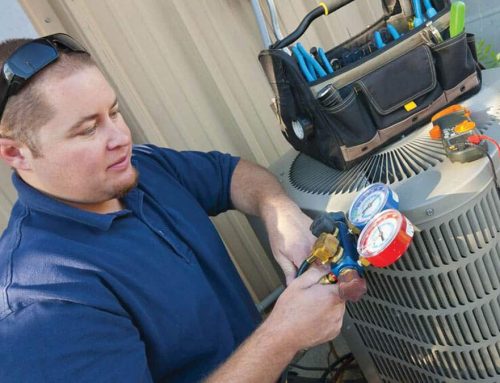What is the Average Air Conditioner Life Expectancy in Phoenix AZ

Although having your air conditioning system in Phoenix serviced annually is a great way to extend its lifespan, eventually it will break down and require replacement. It’s also a statement of fact that most homeowners do not plan for this eventuality, and when it occurs, it’s often a shock to our pocketbooks. It is very difficult to predict what the average air conditioner lifespan in Phoenix AZ might be – there are many factors that can impact its life expectancy.
Noted below are a few of the factors that can impact the average air conditioner life expectancy in Phoenix AZ and some things you can easily do to extend the life of your AC unit.
First – How Long Does an AC Unit Last in Phoenix AZ?
The US Department of Energy suggests that the average lifespan of the typical central air conditioning system in the United States ranges between 13 and 15 years; assuming they are maintained and serviced annually. However, the most important thing to realize about this statistic is that it includes an average from all 50 US States and not just Arizona. In our home state, due to the extreme heat, weather conditions and other factors, the typical AC unit life expectancy can be reduced by as much as 20% in many cases. Doing the math, this means that home owners in the Phoenix valley can expect their homes AC system to eventually breakdown after 10 years from its original installation date.
There are two factors that can cause premature breakdown of any AC system, but those especially in homes surrounding the Phoenix metro area. These factors include:
- The extreme heat: When an AC system has to work harder to cool a room or a house, it causes undo stress on the complete system. This is why many AC contractors recommend keeping the temperature setting at a conservative temperature frequently – so that once the room or home is cooled, the AC unit can slowly maintain the temps.
- Constant exposure to outdoor elements: We get lots of wind and blowing sand in Phoenix, so no matter how good an AC unit is encased, a lot of this debris finds itself inside your cooling unit and can prematurely wear out parts. This is why it’s a good idea to either have a protective covering on top of your outdoor AC unit or cover it during the winter months, to reduce exposure to blowing sand.
- Lack of routine maintenance and service: Due to the two items above, it’s crucial to be proactive about activating a routine service and maintenance program. Simple things like replacing indoor air filters, cleaning the outside of the unit, and bi-annual inspections help to prolong it’s lifespan. But, forgetting completely about service is a surefire way to expedite your AC systems demise – when you can least afford to do so.
Second – Are There Ways to Increase the Lifespan of an AC Unit Outside?
Believe it or not, it’s not that difficult to keep your AC system running strong for many years; even in our harsh weather environment. Generally speaking, as long as you follow these two important tips, there is no reason why you can’t expect your homes AC system to last a few years longer than the expected 10-year lifespan.
- Replace your indoor filters every month. People often move to Phoenix for their health. However, did you know that according to the non-profit organization Right2Breathe®, that allergy & asthma attacks, COPD flair-ups and even exposure to the common cold can be reduced significantly by changing out your indoor air filters once per month? Since the majority of our days are spent indoors, from sleeping to socializing, it makes sense that if you improve your indoor air quality your risk of having breathing issues reduces. If your cooling unit can breathe easy and air can circulate throughout your home without restrictions, the AC unit will work much more efficiently. This also helps to reduce strain on the device and will save you money on utility bills as well.
- Activate bi-annual maintenance program: Have routine cooling service in Phoenix completed twice per year. Before flipping your AC on for the year, have a professional HVAC service technician service your AC unit. They’ll open it up and clean out all of that dirt and debris that blows into the unit in the winter season.
- Protect the Unit from Exposure: A major contributing factor to premature wear and tear of an outside AC unit is exposure to the harsh weather elements in Phoenix. Arguably the most damaging is frequent exposure to the sun. While temperatures can rise above the 100 degree mark from May till September, the sunlight itself is what really causes trouble. Direct sunlight produces UV rays, and these rays can cause damage to the outer ‘skin’ of an outdoor AC unit. Blowing sand and extreme thunderstorms introduce the potential of haboobs as well. By building or installing a protective shelter, you can protect the AC unit from exposure to our harsh conditions.
- Remove debris from the AC system: An air conditioning unit works best when it breathes easy. While replacing the indoor air filters is the best way to accomplish this task, it’s also critical to clear any dirt or debris from the outside vents. Sometimes a simple wash of the outer vents will do the job, while in other instances, you’ll have to personally remove branches, twigs, and leaves.
Third – Are There Ways to Increase the Lifespan of an Air Conditioner from Inside Your Home?
The best way to look at cooling your home is to consider it a marathon as opposed to a sprint. Believe it or not, the most efficient way for an AC system to work is to keep the temperature set at a comfortable setting as opposed to shutting the system off while you’re not home and having it work overtime to rapidly cool your home. The United States Department of Energy suggests the following tips to keep your AC running efficiently around the clock as opposed to working hard for a short period of time.
- Keep your thermostat set at an average temperature. Instead of setting your AC to be 65 during the day and 76 at night, keep it set at 72 around the clock.
- Dust your vents often during the summer. When you reduce the amount of particulate matter and dust entering the AC system, your indoor air quality will improve. However, it will also allow the AC unit to breathe easier – consuming less energy in the short and long term.
- Use a high-quality vacuum cleaner: Did you know that the majority of dust inside your home is circulated by your AC system and onto your carpets? The problem that many of us don’t realize is that most vacuums are simply redistributing this dust back into the air we breathe. It’s a vicious cycle – but by using a high-quality vacuum cleaner that reduces the amount of particulates or contaminants being reintroduced to the air – you’ll effectively increase the quality of indoor air, breathe easier, but most importantly – reduce the spread of dust that clogs the HVAC vents.
A final helpful hint to consider is to do a quick inspection of your homes AC system. On each AC system, there should be a tag that indicates when the system was installed. If you notice that your AC system is approaching 10 years, it’s a good idea to be proactive about replacing the AC system. In fact, many home owners can save hundreds of dollars by having their AC system swapped out to a new energy efficient system during off-peak periods. By staying proactive in regards to cooling system maintenance and completing a few indoor and outdoor maintenance checks yourself you can prolong that expensive AC replacement service by a few years or more.


